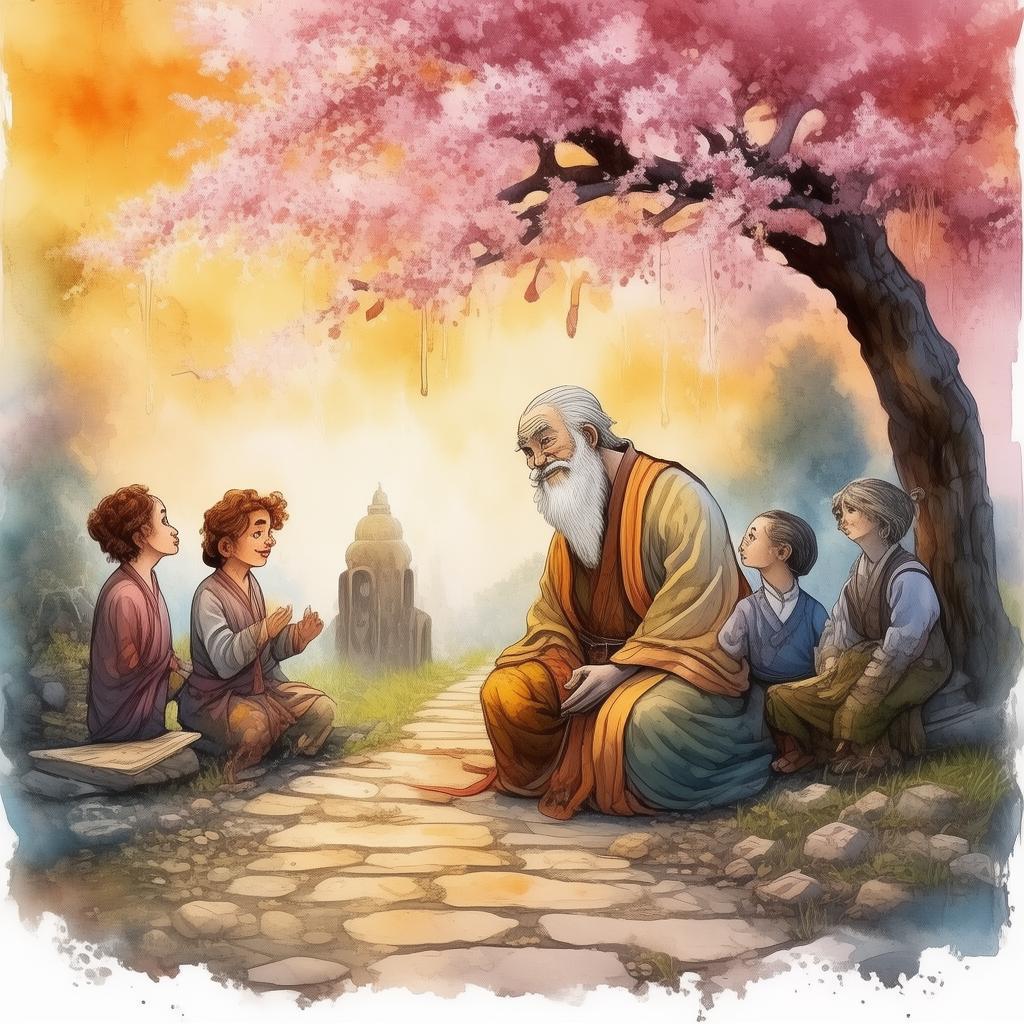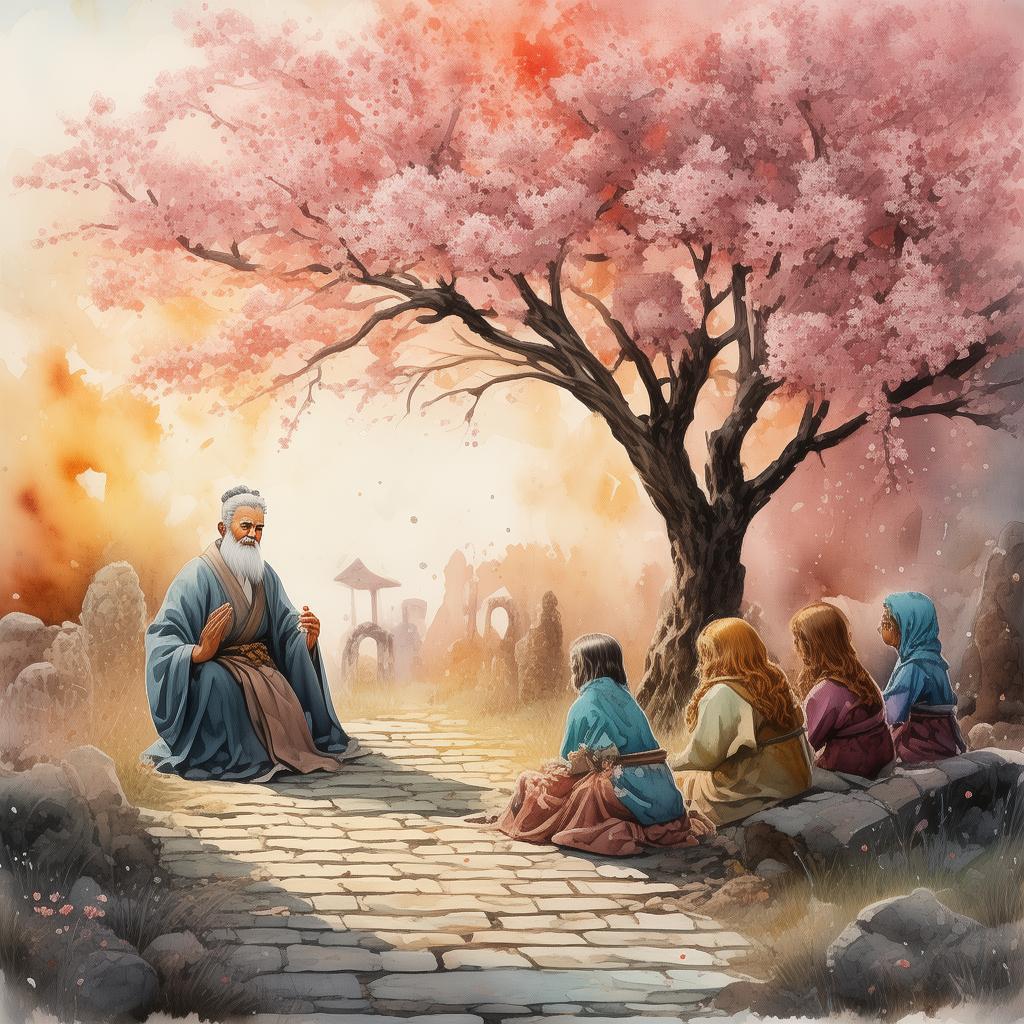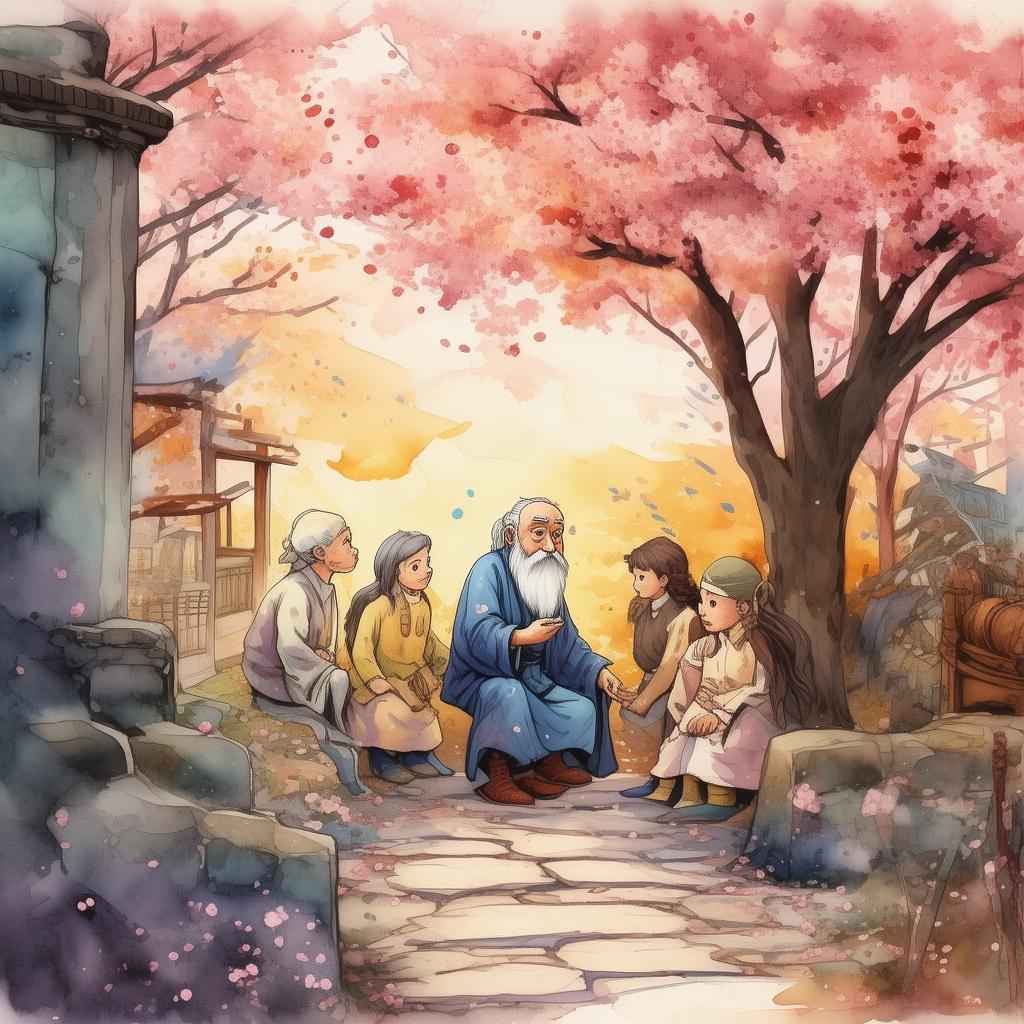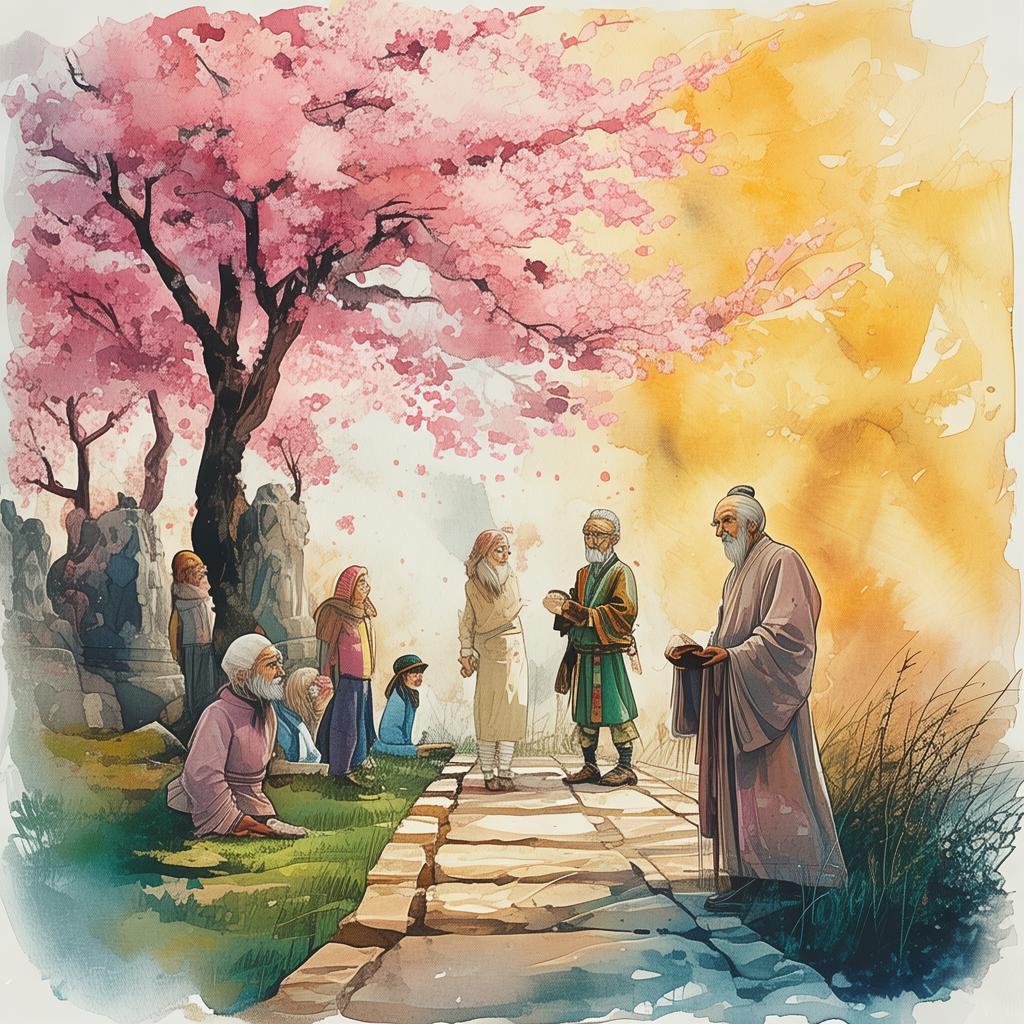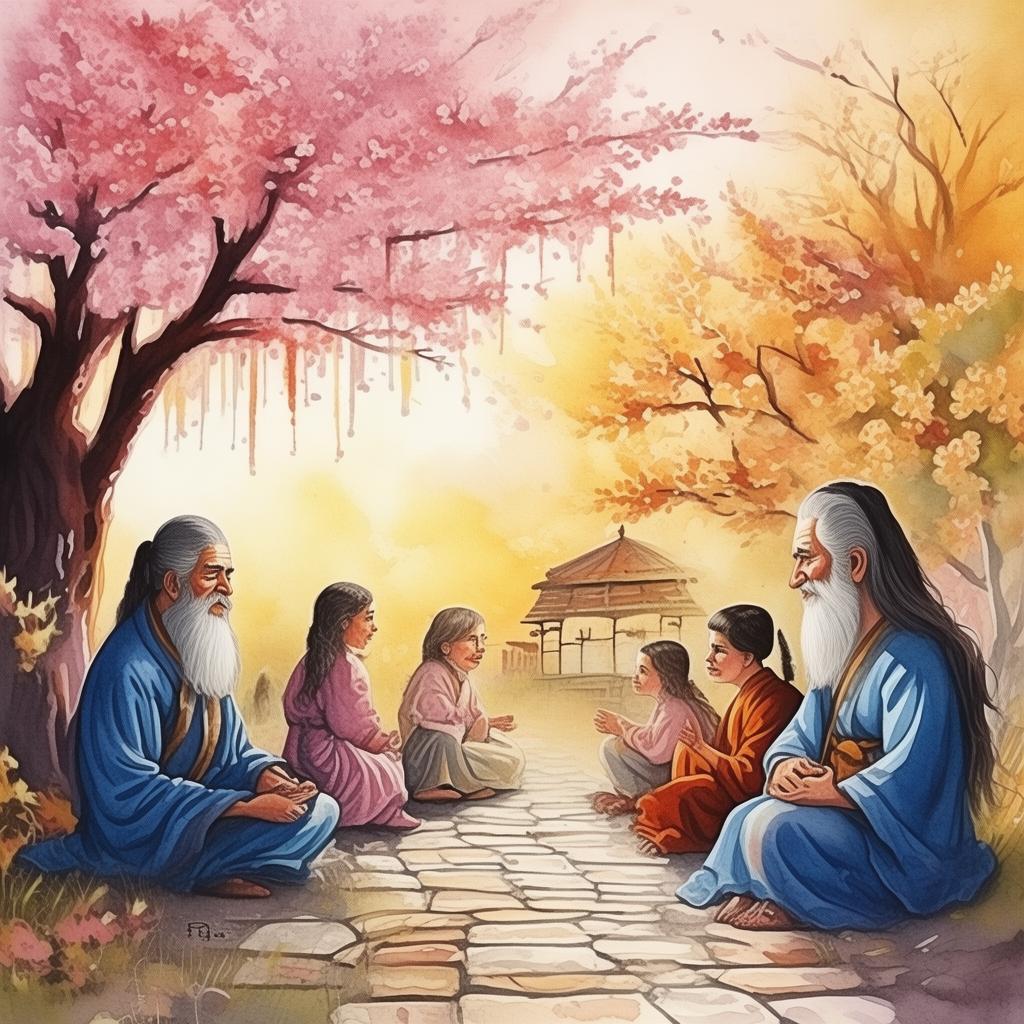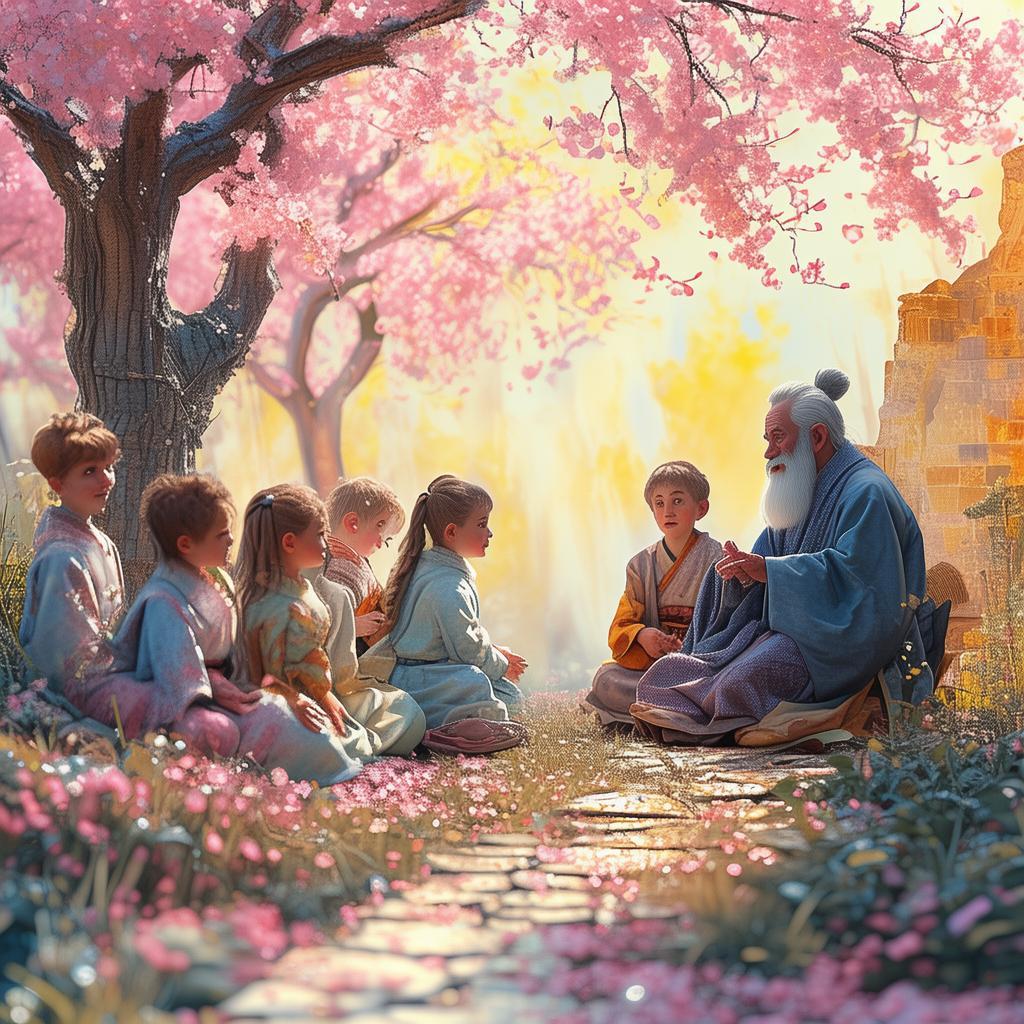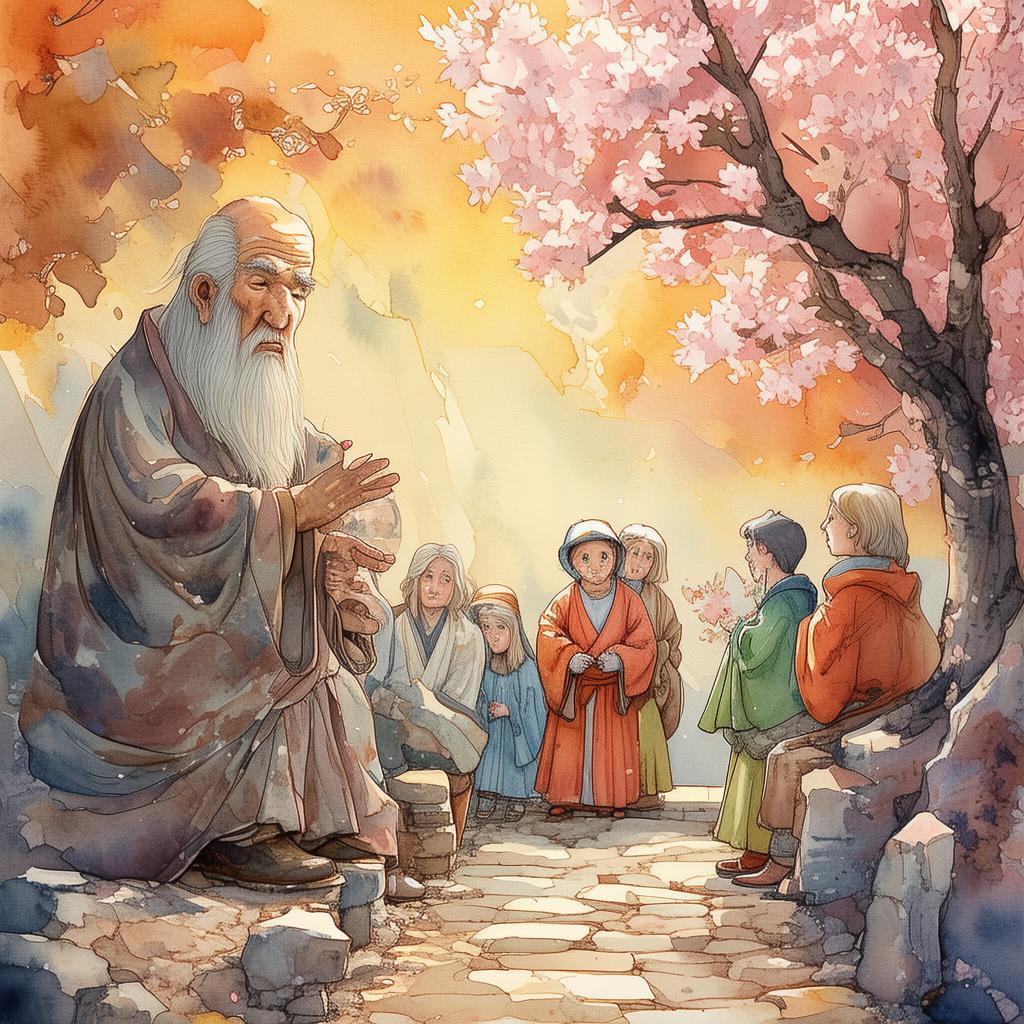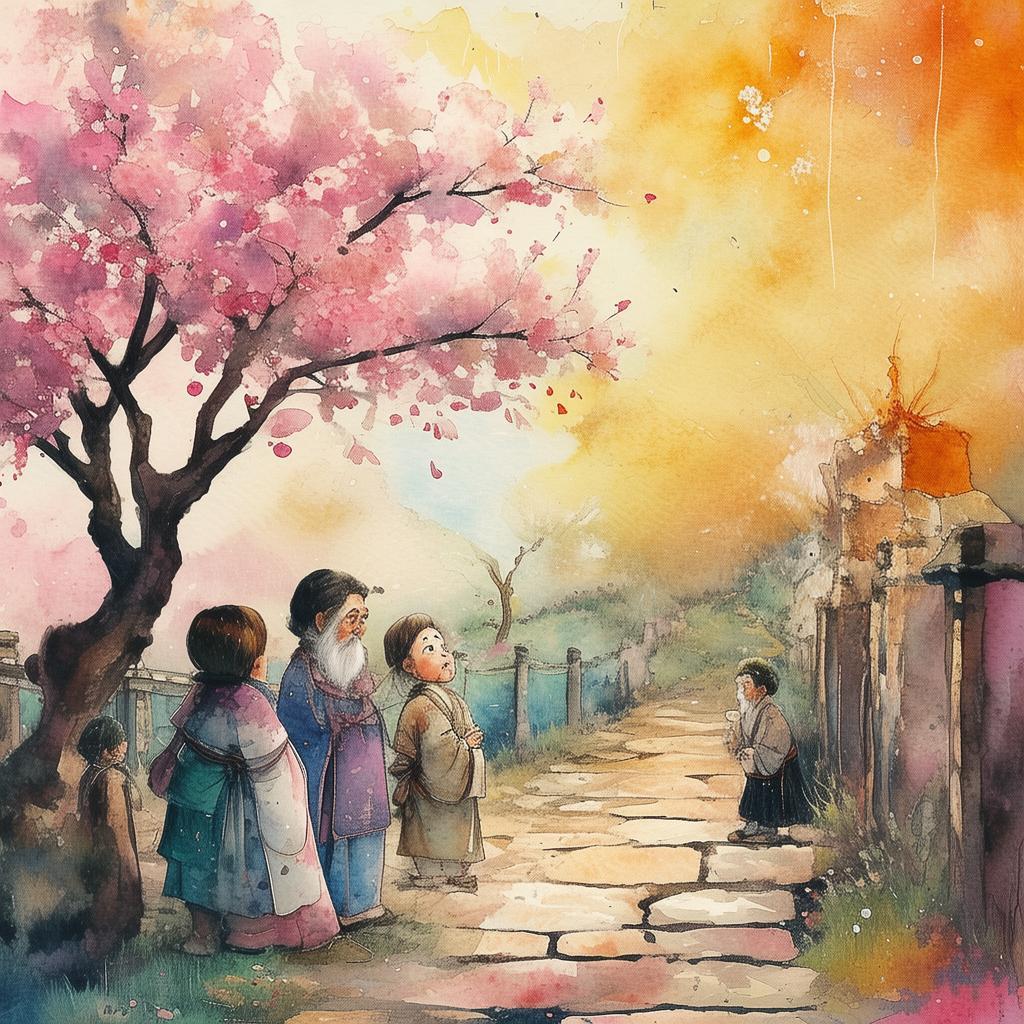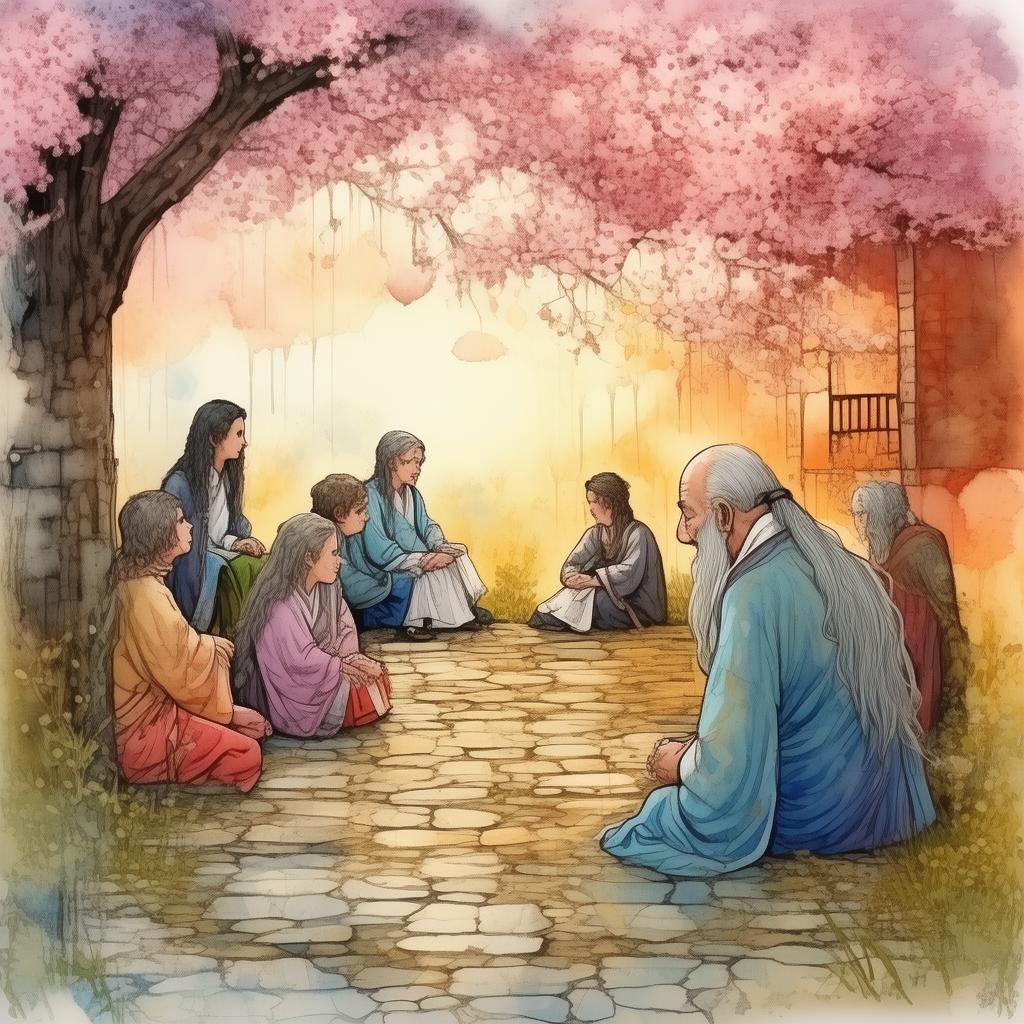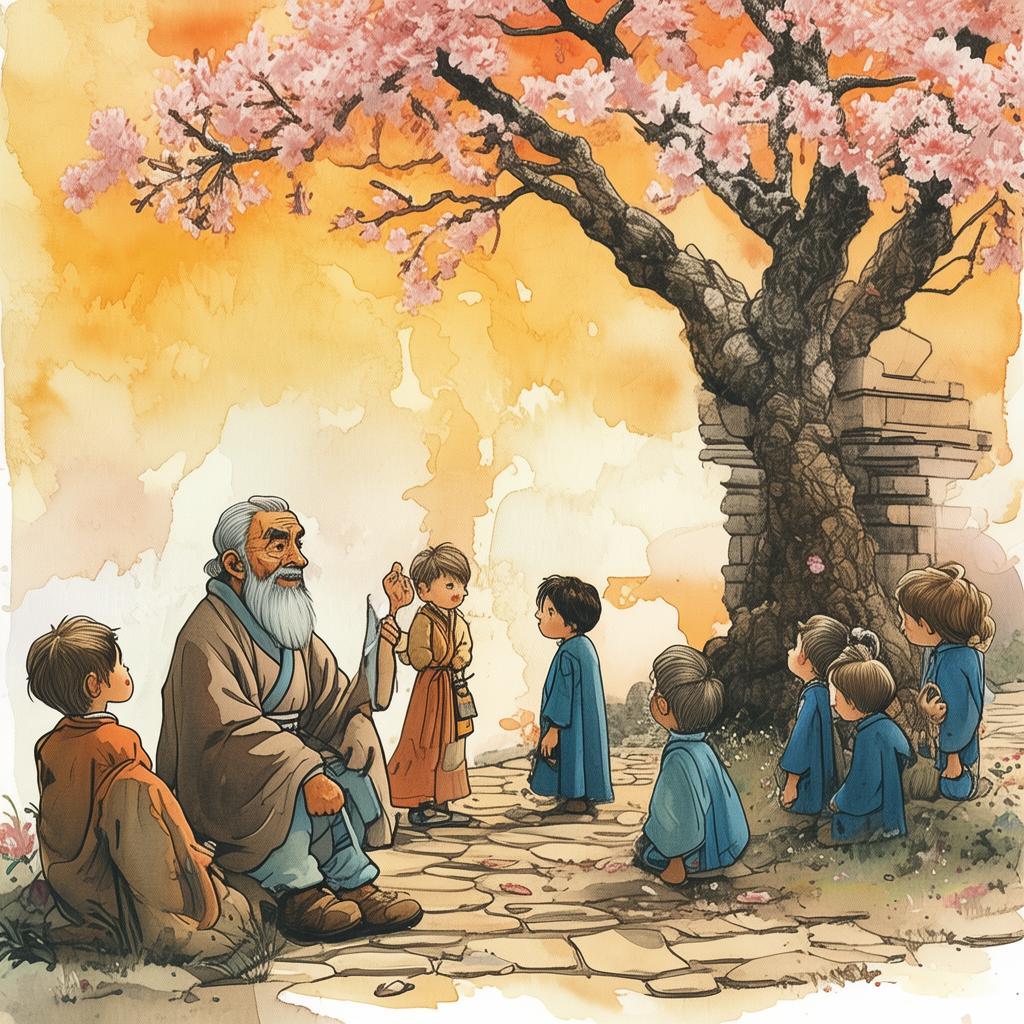Time Weaves: The Golden Ratio's Enigma
In the heart of ancient China, where the whispers of time were as palpable as the morning mist, there lived a young scholar named Jing. Jing was no ordinary man; he possessed a secret knowledge of the cosmos, a wisdom passed down through generations. It was said that he could unravel the enigmas of the universe with mere words, and the Golden Ratio was one such enigma.
The Golden Ratio, an ancient mathematical ratio found in nature, art, and even in the human face, had long fascinated scholars and mystics alike. It was a ratio that seemed to govern the harmony of the cosmos, a ratio that was the key to understanding the very fabric of reality.
One fateful night, Jing was poring over ancient scrolls in his dimly lit study when he stumbled upon a cryptic passage that spoke of a time when the ratio would be tested, when it would be woven into the very fabric of destiny. The scroll spoke of a time traveler, a person who could move between moments, who could alter the past and thus change the future.
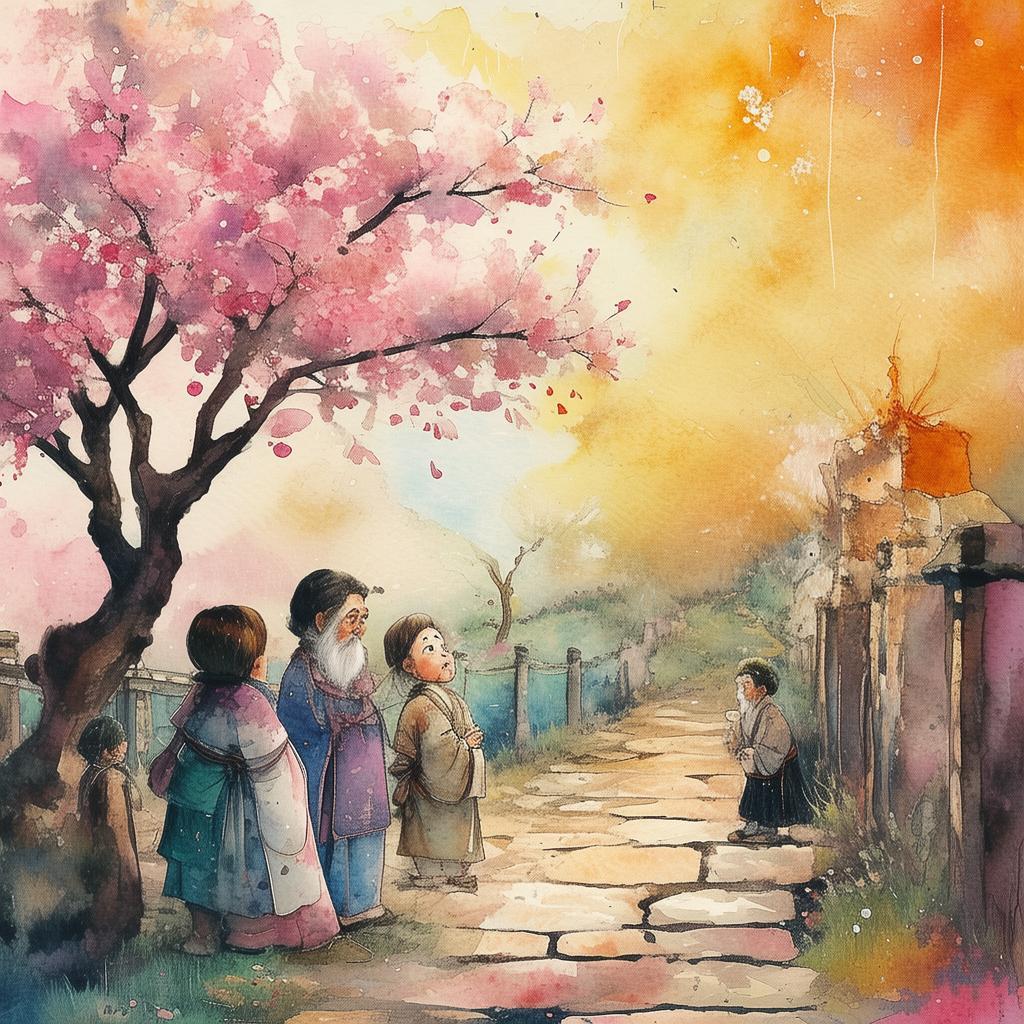
Intrigued by the passage, Jing felt a strange compulsion to seek out this time traveler. He knew that to understand the full potential of the Golden Ratio, he must witness the paradox that awaited its unfolding.
Jing's journey led him to a secluded village, where he found an old man who claimed to be a time traveler. The man, known only as The Observer, had traveled through time to observe the effects of the Golden Ratio on the world. The Observer's eyes were hollow with the weight of countless lifetimes, and his voice carried the echoes of the ages.
"Jing," The Observer began, "you have been chosen to witness the paradox. The Golden Ratio is a delicate balance, and when it is disrupted, time itself becomes a labyrinth."
The Observer then presented Jing with a simple task: to choose a moment in time and alter it slightly. Jing was to select an event, a moment that would resonate with the Golden Ratio, and to change it just enough to observe the ripple effect.
Jing pondered for a moment, his mind racing with possibilities. He thought of a time when a young girl named Mei had fallen into a river, a moment that had been etched into the village's history. Mei had been a bright and lively child, but her untimely death had cast a shadow over the village.
With a heavy heart, Jing nodded and agreed to change Mei's fate. The Observer handed him a small, intricate locket, which he was to use to travel back in time. Jing's mind was filled with questions and doubts, but he knew that this was his destiny.
He activated the locket, and in an instant, he was enveloped in a blinding light. When it faded, he found himself at the riverbank, the same place where Mei had fallen. Jing rushed to the edge, his heart pounding with urgency, and just as Mei's mother watched in horror, Jing reached out and caught the girl, pulling her back to safety.
As Jing returned to the present, he felt a strange sense of satisfaction. He had saved a life, but as he reflected on his actions, he realized that the world had changed. The village was no longer the same; the people's lives had taken a different path, and the balance of the Golden Ratio had been altered.
The Observer appeared before him once more. "Jing, you have seen the paradox. The Golden Ratio is a delicate balance, and every change has consequences."
Jing's eyes widened as he realized the magnitude of his actions. He had saved one life, but he had also altered the course of history, setting off a chain of events that he could no longer control.
Days turned into weeks, and Jing's world began to unravel. He saw the consequences of his actions in the faces of the villagers, in the changing landscape, and in the very fabric of the cosmos. He understood that the Golden Ratio was not just a mathematical ratio; it was a principle that governed the very essence of reality.
Jing returned to his study, his heart heavy with the weight of his discovery. He knew that he could not change what had been, but he also understood that the knowledge he had gained was invaluable. He began to write, to share his insights, and to warn others of the dangers of tampering with time.
As he wrote, he realized that the Golden Ratio was not just a mathematical enigma; it was a symbol of harmony, a reminder that every action has consequences, and that the past, present, and future are all interconnected.
And so, Jing's story became one of legend, a tale of a time traveler who had discovered the true meaning of the Golden Ratio and the delicate balance of destiny. His words spread far and wide, and the villagers of the once peaceful village came to understand the profound wisdom contained within the ratio.
The story of Jing and the Golden Ratio's Enigma became a proverb, a reminder to all who would listen that the past, present, and future are all woven into the fabric of time, and that the choices we make in the present will echo through eternity.
✨ Original Statement ✨
All articles published on this website (including but not limited to text, images, videos, and other content) are original or authorized for reposting and are protected by relevant laws. Without the explicit written permission of this website, no individual or organization may copy, modify, repost, or use the content for commercial purposes.
If you need to quote or cooperate, please contact this site for authorization. We reserve the right to pursue legal responsibility for any unauthorized use.
Hereby declared.
